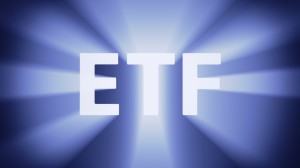 In a rare move of true consumer protection, the Securities and Exchange Commission (SEC) denied applications by fund managers BlackRock Inc. and Precidian Investments to offer nontransparent exchange-traded funds (ETFs) to investors by stating that such products were not in the public’s interest. The SEC stated that the proposals could inflict substantial costs on investors, disrupt orderly trading, and damage market confidence in trading of ETFs.
In a rare move of true consumer protection, the Securities and Exchange Commission (SEC) denied applications by fund managers BlackRock Inc. and Precidian Investments to offer nontransparent exchange-traded funds (ETFs) to investors by stating that such products were not in the public’s interest. The SEC stated that the proposals could inflict substantial costs on investors, disrupt orderly trading, and damage market confidence in trading of ETFs.
The fund managers have argued that opening up actively managed ETFs to full transparency would lead to front running, a strategy where other investors trade ahead to gain a benefit. As a result, the funds argue that their trading strategies are rendered obsolete by the market’s knowledge of them. Thus, the solution the industry devised was to deprive the investing public of disclosure of fund holdings.
However, the SEC said that daily transparency is necessary to keep the market prices of ETF shares at or close to the net asset value per share of the ETF. But as usual, the industry losses a battle but will eventually win the war. Others funds such as American Funds, T. Rowe Price Group Inc. and Eaton Vance Corp. all have applications pending for similar nontransparent ETFs where the SEC could rule on various alternative proposals. In addition, Precidian’s chief executive, Daniel J. McCabe, told InvestmentNews he believed the SEC’s objections can be worked though and that it will merely take longer to get approval because the funds are not standard.
ETFs are products which track a market index such as the Dow Jones, a currency, a market sector, even a country and have been among the most successful new products launched in recent years. There was nearly $1.7 trillion in U.S. ETFs by the end of 2013. The SEC’s decision may have been prompted by a desire to protect investors who are already overloaded with hundreds of novel and exotic types of ETFs that are difficult enough understand.
For instance leveraged ETFs use a combination of derivatives instruments and debt to multiply returns on an underlining asset, class of securities, or sector index. The leverage employed is designed to generate 2 to 3 times the return of the underlining assets. In addition, leveraged ETFs are generally designed to be used only for a single day’s holding in many cases. The SEC has warned that most Leveraged ETFs reset daily and FINRA has stated that Leveraged ETFs are complex products that are typically not suitable for retail investors.
Launching yet another type of ETF into a market swimming with various types of ETF investment will only further confuse investors. Further, it is likely that any nontransparent ETF will come with additional costs and fees to investors. Thus, brokers, as is the case with leveraged ETFs, will be tempted to sell these products based upon the increased commission alone without regard to whether the investor could benefit from the additional risks of a nontransparent product.
Investors who have suffered losses through the sale of ETFs may be able recover their losses through arbitration. The attorneys at Gana Weinstein LLP are experienced in representing investors in cases where brokerage firms fail to supervise their representatives sale of these speculative products. Our consultations are free of charge and the firm is only compensated if you recover.
 Securities Lawyers Blog
Securities Lawyers Blog

